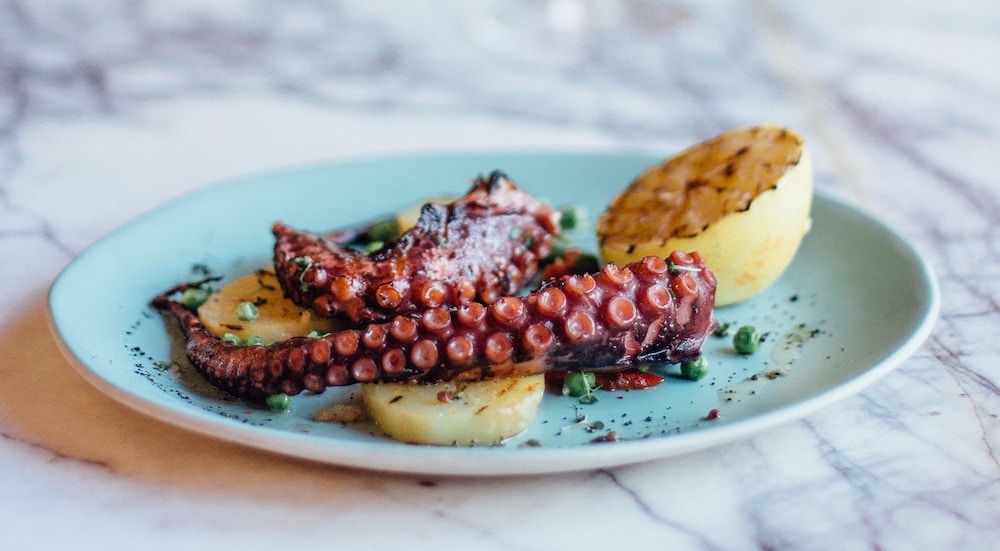
In Peru, chefs are influencers. Armed with international training, Michelen-starred restaurants, and huge Instagram followings, Peru’s hottest culinary stars help drive the food scene and can elevate a humble ingredient or regional dish to cult status. This influence extends well beyond the country’s borders: gastronomic tourism is booming, and the World Travel Awards has named Peru one of the world’s top culinary destinations for seven years in a row.
Of course, Peruvian cuisine is synonymous with seafood. From ceviche to grilled octopus, seafood is one of the areas where local ingredients shine. What may come as a surprise is that despite the deep love of seafood, sustainable and traceable seafood movements are still very nascent. Instead, the focus is on quality and innovation. With national pride tied to local gastronomy, and a focus on using truly Peruvian products and reflecting the rich cultural history present there, chefs and diners alike are preoccupied with getting the best quality product. Mussels from Ilo, octopus from Ancon, and scallops from Paracas are all synonymous with quality and flavor. But when it comes to tracing and labelling the product, or ensuring its origins are sustainable, things start to get a bit fuzzy.
For Future of Fish, this is an opportunity. During our discovery research with Peruvian fishing caletas last year, we identified the gastronomic movement as an ideal intervention point for helping drive improvements in the seafood supply chain. Along with our partner Programa Nacional “A Comer Pescado”, we have been developing the idea for a sustainability standard for Peruvian seafood to help create more awareness, develop common terminology, and grow a larger market for truly traceable and sustainable Peruvian seafood. Ideally, this would become a nationwide movement, with restaurants, supermarkets, and home cooks all participating. As a first step, we’re reaching out to chefs, the biggest innovators and influencers in the Peruvian seafood scene.
On March 26, we held our first gathering to convene chefs and nonprofits to begin a conversation among Peruvian gastronomic community members about the potential for a combined effort on a sustainability standard, as well as identifying other priorities to move this sector forward. Our Global Operations Associate Chris Giordano did the legwork, meeting individually with chefs from several restaurants around Lima to discuss sustainability and all its intricacies. During the convening, which we ran together with A Comer Pescado, we were able to make some important initial progress, including identifying key actors and intervention opportunities in Peruvian seafood markets. Specifically, challenges from the chef perspective were grouped and defined, and the attendees proposed activities that could solve these problems with a focus on how the gastronomic community could contribute to improvements in quality, transparency, and sustainability. A commitment to develop a Peruvian culinary community responsible and respectful of aquatic ecosystems while supporting transparent and sustainable domestic supply chains was also drafted and signed.

Since the event, we have been actively working with PNACP and chefs to determine ways to further engage with the gastronomic community, specifically around getting more and different types of stakeholders to participate in these important conversations. To encourage actors to put aside time to discuss a nascent sustainability project means we need to meet them where they’re at, figure out the right incentives, and find ways to participate that are clearly aligned with their core mission. We’re also looking at how to expand the conversation to involve restaurant managers and buyers – equally important players in the restaurant ecosystem.
As we design our next steps, we invite chefs and restaurateurs to get in contact if they’re interested in signing the letter of commitment mentioned above to indicate their interest in the development of a transparent and sustainable seafood system in Peru. View the letter outlining the commitments in English or in Spanish, or email mkochen@futureoffish.org for more information.
Published May 02, 2019




